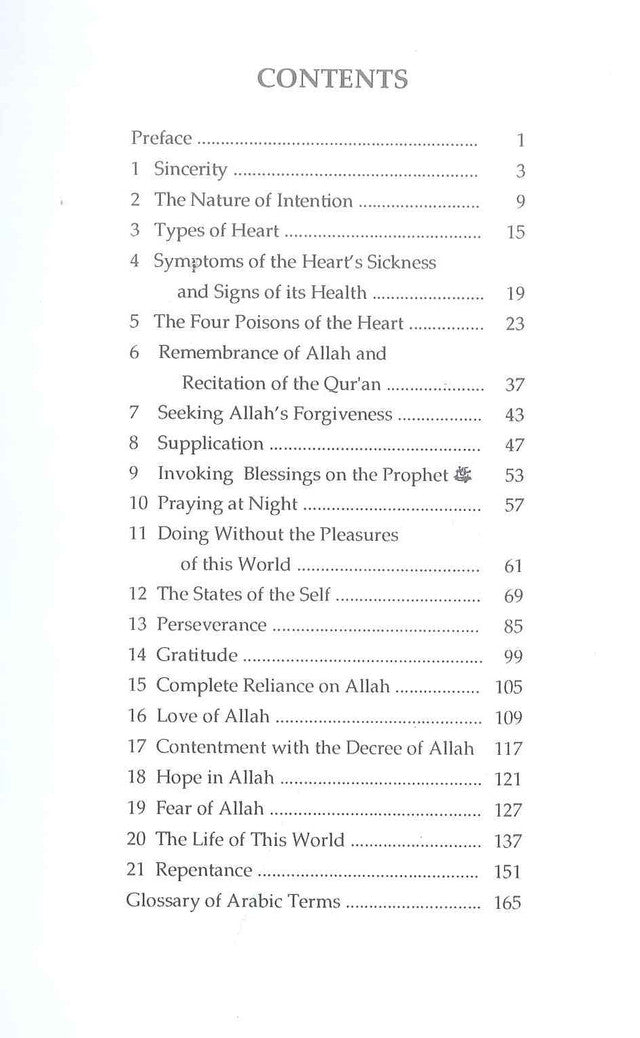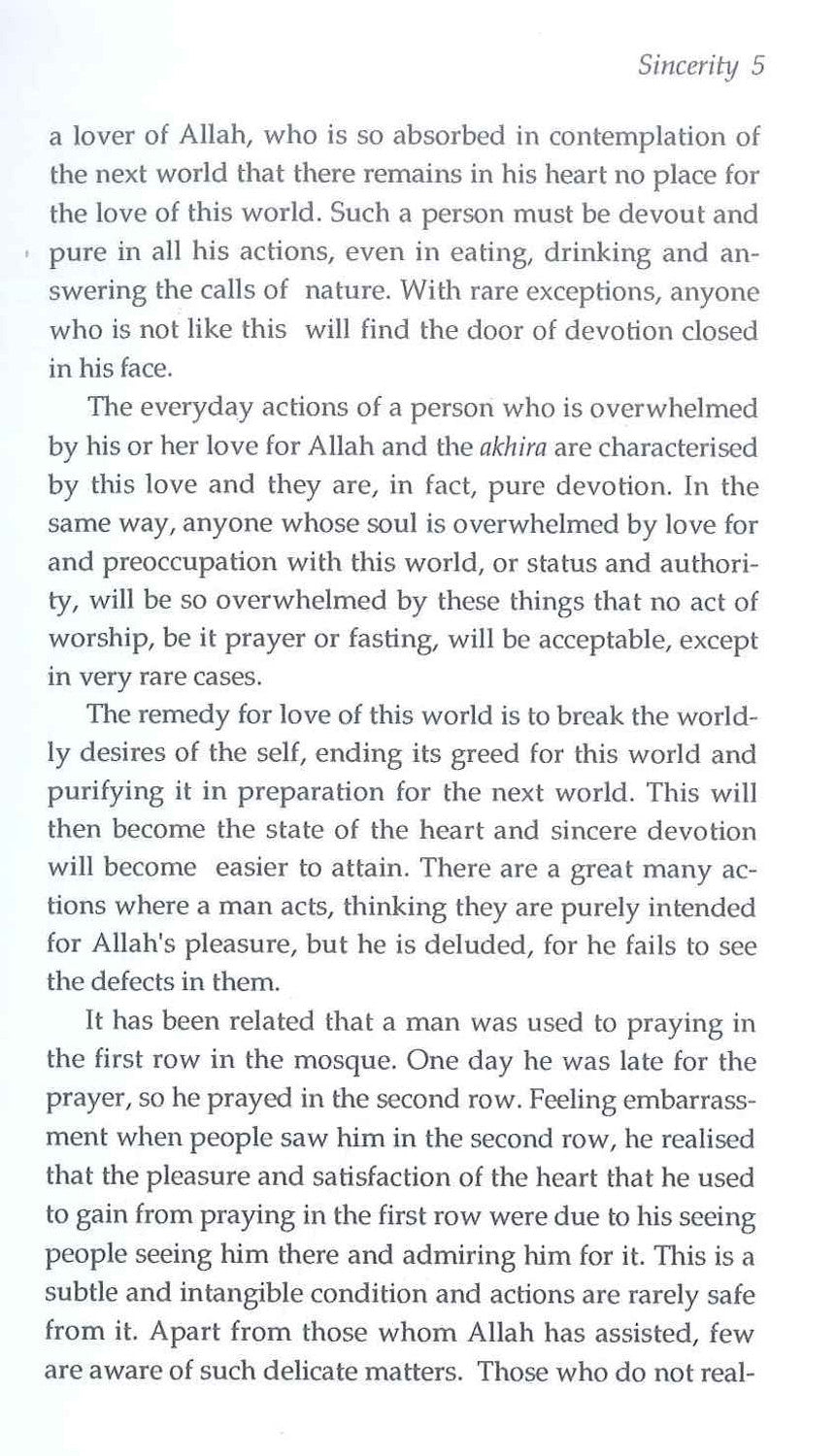The Purification Of The Soul | Ibn Rajab al-Hanbali,Al-Jawziyya & Abu Hamid al-Ghazali
The Purification Of The Soul | Ibn Rajab al-Hanbali,Al-Jawziyya & Abu Hamid al-Ghazali
Publisher:
Al Firdous LTD
Author:
Ibn Rajab al-Hanbali,Al-Jawziyya & Abu Hamid al-Ghazali
Language:
English
Binding:
Soft Cover
Pages: 180
Size: A5 |5.8 x 8.3 in| 14.8x 21 cm
Couldn't load pickup availability




Collapsible content
Description of Book
Publisher
Al Firdous LTD
Author
- Ibn Rajab al-Hanbali,Al-Jawziyya & Abu Hamid al-Ghazali
Sample Pages - Content
The Purificatioff of the Soul compiled from the works of Ibn Rajab al-Hanbali, Ibn al-Qayyim al-Jawziyya, and Abu Hamid al-GhazaliCONTENTS Preface. 1 Sincerity 2 The Nature of Intention 3 Types of Heart 4 Symptoms of the Heart's Sickness and Signs of its Health 5 The Four Poisons of the Heart 6 Remembrance of Allah and Recitation of the Qur'an 1395 19 23 37 7 Seeking Allah's Forgiveness. 43 8 Supplication. 47 9 Invoking Blessings on the Prophet 53 10 Praying at Night 57 11 Doing Without the Pleasures of this World 12 The States of the Self 13 Perseverance 14 Gratitude 15 Complete Reliance on Allah 16 Love of Allah 61 69 85 99 105 109 17 Contentment with the Decree of Allah 117 18 Hope in Allah 121 19 Fear of Allah 127 20 The Life of This World 137 21 Repentance Glossary of Arabic Terms 151 165+ Sincerity 5 a lover of Allah, who is so absorbed in contemplation of the next world that there remains in his heart no place for the love of this world. Such a person must be devout and pure in all his actions, even in eating, drinking and an- swering the calls of nature. With rare exceptions, anyone who is not like this will find the door of devotion closed in his face. The everyday actions of a person who is overwhelmed by his or her love for Allah and the akhira are characterised by this love and they are, in fact, pure devotion. In the same way, anyone whose soul is overwhelmed by love for and preoccupation with this world, or status and authori- ty, will be so overwhelmed by these things that no act of worship, be it prayer or fasting, will be acceptable, except in very rare cases. The remedy for love of this world is to break the world- ly desires of the self, ending its greed for this world and purifying it in preparation for the next world. This will then become the state of the heart and sincere devotion will become easier to attain. There are a great many ac- tions where a man acts, thinking they are purely intended for Allah's pleasure, but he is deluded, for he fails to see the defects in them. It has been related that a man was used to praying in the first row in the mosque. One day he was late for the prayer, so he prayed in the second row. Feeling embarrass- ment when people saw him in the second row, he realised that the pleasure and satisfaction of the heart that he used to gain from praying in the first row were due to his seeing people seeing him there and admiring him for it. This is a subtle and intangible condition and actions are rarely safe from it. Apart from those whom Allah has assisted, few are aware of such delicate matters. Those who do not real-الفردوس AL-FIRDOUS ISBN 1-874263-00-0 9781874 263005 Al-Firdous Ltd, London
Who is Ibn Rajab al-Hanbali,Al-Jawziyya & Abu Hamid al-Ghazali?
Ibn Rajab al-Hanbali (d. 795 AH) was a renowned scholar of the Hanbali school of thought. He is best known for his deep knowledge of hadith and his works on spiritual purification.
Ibn al-Qayyim al-Jawziyya (d. 751 AH) was a disciple of the famous scholar Ibn Taymiyyah. He contributed extensively to Islamic jurisprudence, theology, and spirituality.
Abu Hamid al-Ghazali (d. 505 AH) was one of Islam's most influential scholars, known for his contributions to philosophy, theology, and Sufism.




